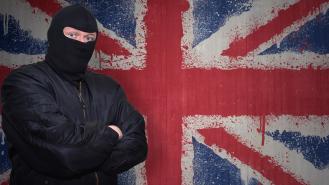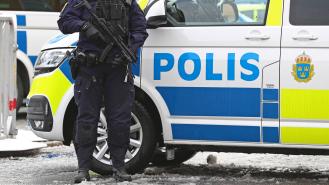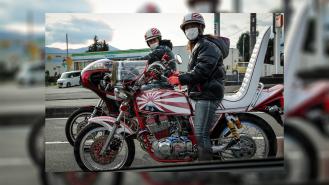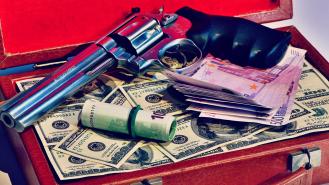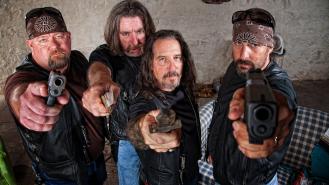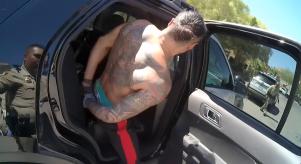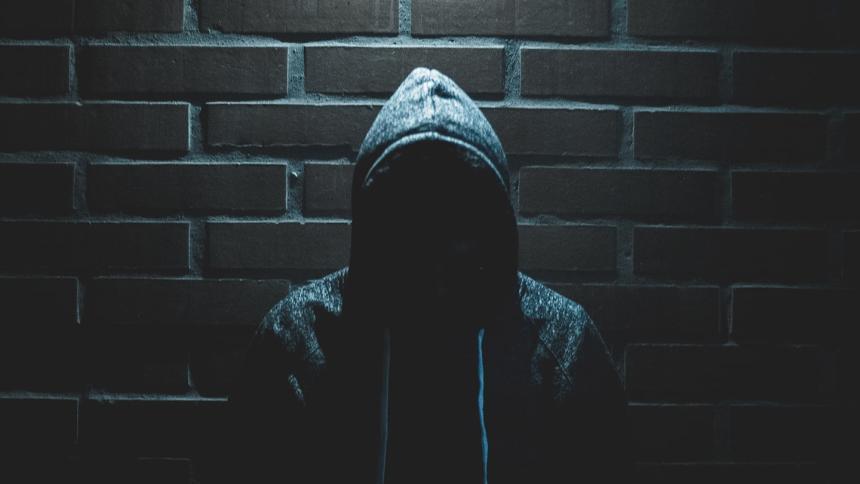
America's hidden mafias
We’ve probably got Hollywood to thank for our perception of organised crime in America. Ask anyone about mobs in the US and it’s likely they’ll talk to you all about slick-haired gangsters in silk suits that eat cannolis and garrote ‘rats’ in their Lincoln Continentals.
Of course, this isn’t an entirely fictionalised idea. Modern American history backs up the Italian-American influence. When mass migration saw millions of poor Europeans pitch up at Ellis Island almost a century and a half ago, criminal elements from ‘The Boot’ were quick to make their mark. So too, though, were similar characters from Ireland, Sweden and various Slavic countries. The enduring image, however, is that of the Cosa Nostra don and his foot soldiers shaking down local enterprises for protection money. It’s an archetype that’s hard to shake.
The truth is that the influence of the old school Sicilian mafia has severely waned over the past 50 years. It still exists, but it’s much smaller and has much more competition now. Other ‘mafias’ sensed the void created by their dismantling (partly due to US law enforcement’s ‘RICO’ laws). Some you’ll have heard of, others you won’t. We’re homing in on the latter here.
These are the United States’ hidden mafias...
A ragtag collection of criminal associates, the ‘Dixie Mafia’ mostly operate out of Mississippi but are active throughout the rest of the southeastern states (Texas, Arkansas, Tennessee, Georgia, Alabama and Louisiana).
Named for their Confederate state origins and attitudes, these guys are the antithesis of the Italian mob. There are no family connections, strict hierarchy, respect or code with ‘The Southern Mafia’. These good ol’ boys often pal up in prison and tend to operate in backwater areas known to be lax on policing.
Their modus operandi often sees them operating legitimate ‘front’ businesses, secretly peddling drugs and stolen goods out of them and laundering the profits.
The Mormon Splinter Group, The Kingstons
They’ll call themselves ‘a community’, a fundamentalist offshoot of Mormonism. They’ll also call themselves ‘The Order’. Some refer to them as a sect or even a cult, even an organised crime gang. They’re The Kingston Clan and they’re the very epitome of a ‘hidden’ mafia.
Utah prosecutors have referred to them as ‘the biggest organised crime group in the state’. They appear, from the outside, to be an entirely innocent entity; religious folks with a lucrative business empire. But scratch away at the surface and there’s polygamy, child abuse, incest, slave labour, white supremacy, money laundering, fraud, witness tampering, the list goes on.
The Chaldean Mafia
Known to operate out of Illinois, Michigan, California, Arizona, Texas and Florida, the Chaldean Mafia are a criminal network that started out some 35 years ago. They started life in Detroit and control a lot of the narcotic routes across America. The fellas also dabble in armed robbery, murder and kidnapping. But it's their ties to high-level Mexican drug cartels that really prove lucrative.
Not all but many members chart their heritage back to The Chaldean Catholic from 16th century Upper Mesopotamia. Their families emigrated from Iraq and the modern gang still considers Turkish gangs operating in America to be rivals.
The Marielitos
While not quite boasting the numbers and wielding the power that they did in the 1980s, Cuban-American organised crime outfits - collectively known as ‘Marielitos’ - are still a force to be reckoned with in the US today. Despite their relatively low profile.
Marielitos gangs generally work separately but under the same banner and have close ties. They also have connections with South and Central American drug cartels, helping both distribute cocaine and marijuana. They also carry out hits for the cartels, as well as concern themselves with other illegal activities such as prostitution, extortion, robbery, burglary, money laundering and corruption.
The ‘Tongs’
Working almost like secret societies as much as gangs, the Chinese-American ‘tongs’ are fraternal organisations that hold meetings at special halls (called ‘tongs’) and ostensibly work as unions or community meetings. They can also act as summits for criminals.
Associated, as you might assume, with the Triads, many tongs in the states are (or appear) legitimate, but a good number of others are proven to have ties to organised crime. Or even work as fully independent crime syndicates themselves.
Drugs, protection, prostitution, illegal gambling and human trafficking are among their more preferred and lucrative illicit activities. When the tongs aren’t breaking the law for profit, they’re warring amongst themselves. Not so much now, but in the late 19th and early 20th centuries, Tong Wars ravaged US Chinatowns. The tongs are quieter now, but still, a force to be reckoned with.
The Albanian-American Mobs
Despite, being a country Albania has a population comparable to the city of Manchester, its criminal influence across the globe is impressive. Take New York City, for example.
The Big Apple is home to several large and feared Albanian gangs. There’s the Rudaj Organisation, who started off life providing muscle for the Gambino crime family. Then there’s The Albanian Boys, who originated as a youth gang but soon matured into something much more frightening. There’s also the Balaj Organisation (and countless others).
The Albanian mafia is known for their uncompromising attitudes towards violence but remain - for whatever reason - relatively unknown to the wider public.
It’s worth saying upfront here that there is nothing inherently criminal about motorbike clubs. Almost all bikers are normal people. In fact, in biker circles, they put a number on it - 99%. That other 1%, however? Those are the guys to avoid. These are criminal biker gangs involved in all sorts of nefarious activities from dealing meth, guns and stolen goods to extortion, arson, intimidation and murder.
In the US, the gangs include the likes of the Pagan’s Motorcycle Club, Hells Angels, Sons of Silence, Outlaws and Bandidos.
All of these mobs and gangs keep out of the spotlight, relatively speaking. Yet while they might not be the loudest mafias in America, none of them are to be crossed.
